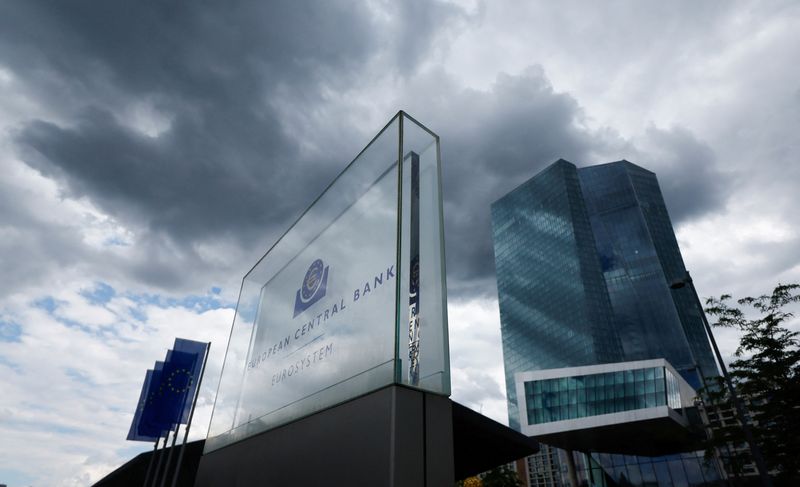FRANKFURT (Reuters) - The European Central Bank cut its interest rates on Thursday, saying lower inflation and economic growth were allowing it to take its foot off the brake slightly.
The second rate cut in three months marks a gradual normalisation in the ECB's policy after the worst bout of inflation in a generation forced it to jack up borrowing costs to record highs last year.
"Based on the Governing Council’s updated assessment of the inflation outlook, the dynamics of underlying inflation and the strength of monetary policy transmission, it is now appropriate to take another step in moderating the degree of monetary policy restriction," the ECB said.
The euro zone's central bank did not explicitly hint at a further rate reduction in October and noted that "domestic inflation remains high".
But it added that "labour cost pressures are moderating, and profits are partially buffering the impact of higher wages on inflation".
Thursday's cut lowers the rate that the ECB pays on bank deposits from 3.75% to 3.50% - a level the vast majority of economists still consider restrictive, or dampening economic activity.
Money markets are pricing in several more cuts of the same size, leaving the deposit rate at 2.0% or 2.25% by June 2025.
The rate at which banks can borrow from the ECB at weekly auctions was lowered by a larger increment - from 4.25% to 3.65% - in line with a decision taken earlier this year to diminish the penalty for lenders that use that facility.

The rate on daily cash auctions was lowered to 3.90% from 4.50%.
ECB President Christine Lagarde will be certain to face questions about the future path for rates at a news conference due to start at 1245 GMT.